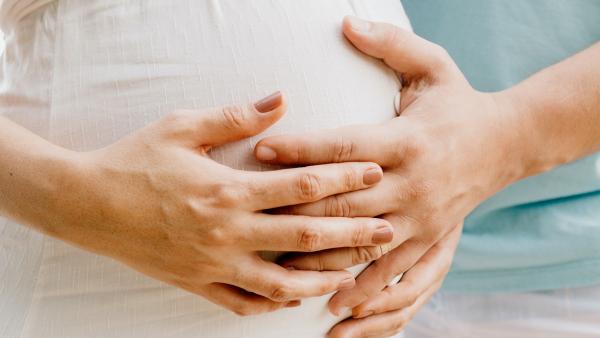The first big decisions when starting your surrogacy journey as a UK intended parent, be it domestic or overseas, will centre on:
-
Choosing the country that suits your needs and budget
-
Matching with your surrogate and undergoing screening
-
Selecting who to have on your team – clinic, lawyer, agent and surrogate;
-
Whether you use the surrogate’s own egg or a donor egg.
All are crucial matters but this article focuses on surrogacy with egg donation as this can be a complex decision.
The answer to the egg donation question may be made for you already by your surrogate or the laws in the jurisdiction you have chosen. Your surrogate may only be willing to carry where an embryo is implanted (gestational surrogacy) or they may wish only for their own eggs to be used. This is a question that should be discussed together with your partner or spouse, as well as with your surrogate and the professionals advising you. The law in some countries will dictate how donation is or is not possible. It is an emotional, social, legal and practical decision that has implications for the future right of the child to know their genetic heritage, and as such deserves considerable thought.
Will egg donation impact on your Parental Order application?
From a legal point of view, it makes no difference to the Parental Order application process in the England and Wales whose eggs are used, subject to meeting the criteria below. This is because in the UK, providing there is a genetic connection via the sperm or the egg, an order will be granted.
What is a Parental Order and why do you need it?
Intended parents resident in the UK must have a Parental Order, regardless of whether they undertook the surrogacy abroad or in the UK. UK law prevails if you are returning from surrogacy abroad to reside in the UK. This is the case no matter whose eggs/sperm were used (subject to eligibility).
Obtaining a Parental Order is the only way to end the legal rights of the surrogate and her partner if she has one. Otherwise, under UK law, they retain all parental rights and legal guardianship over the child regardless of whether you already have an overseas birth certificate in your name/s.
A Parental Order requires an application to court which, if successful, will give full parental responsibility and legal guardianship to the UK intended parent/s and affords the child both a British birth certificate with you named as parent/s and a British passport (if not already obtained). Without a Parental Order, intended parents may be prevented from making decisions about the child’s health and often the child’s education. They may also not be able to travel with the child. Further pitfalls include complex legal issues if the intended parents’ marriage/relationship were to break down, or it could involve complex inheritance issues for the child and a challenging search later on to find the surrogate.
Summary of the benefits of a Parental Order
-
A Parental Order gives certainty to the non-biologically connected parent, as they will acquire full legal and parental rights and protection. They will not be legally recognised as a parent without being party to the Parental Order. Should circumstances change or you separate/divorce, without a Parental Order they may have to adopt or take legal action to see their child.
-
You/both have full legal rights to make medical and educational decisions for your child;
-
Without a Parental Order granted in the UK the surrogate and her partner will remain the UK legal guardians according to UK law; and
-
It will have implications on inheritance tax at a later stage
Criteria for a Parental Order
A genetic connection to one of the intended parents or yourself if a single intended parent is mandatory for a surrogacy arrangement to be accepted in the UK lawfully and to enable a Parental Order to be obtained. If there is no genetic connection it would instead be considered an adoption, which has its own rules and legal process and could be considered unlawful. The requirement for a genetic connection means:
-
Single women using both an egg and sperm donor as well as a surrogate would not be able to obtain a Parental Order because there would be no genetic connection to the intended parent.
-
Similarly, if a man does not use his own sperm but instead that of a sperm donor, he would be unable to obtain a Parental Order because there would not be a genetic connection to him as the intended parent.
-
Couples of any sexuality looking to use both an egg and sperm donor are ineligible to apply for a Parental Order because of the lack of genetic connection.
To reiterate: the UK requirement is that there must be a genetic link. If there is no genetic connection between the intended parent/s and the eggs or sperm used, then this will not be a lawful surrogacy. If the intended parents choose to proceed anyway, it will not be a lawful arrangement and is likely to cause legal problems for the parent/s and child in the future.
In order to obtain a Parental Order, the surrogate and her partner must sign a form post-birth (after 6 weeks) and the intended parents must submit this, together with their applications, within 6 months of the birth to qualify .
When eggs from the surrogate are used, does she have a greater claim over the child?
If the surrogate uses her own eggs and the intending parent’s sperm, this qualifies as the requisite genetic link under UK law. It does not give the surrogate any greater claim to the child.
When making their Parental Order application, the extent of the information that the court requires from the intended parents in their witness statements is to set out the conclusion they reached regarding whether to use a sperm donor or egg donor or use the surrogate’s eggs, and why.
What happens in the event that the surrogate becomes attached to the child?
In the event of the surrogate becoming attached to the child and refusing to sign the parental application form, or if she sought contact with the child or even tried to prevent the intended parents seeing the child, the UK courts would arrange a report on the welfare of the child and both families and a court hearing would take place. Use of the surrogate’s own eggs or of a donor egg would make no difference to the outcome.
What is the legal status of surrogacy agreements in the UK?
Currently in the UK, surrogacy agreements are not legally binding, although they are statements of intent. If the surrogate does change her mind it may be that you would need to ask the court instead for an adoption order; this is all subject to how the negotiations, court hearings and other elements of the process proceed. The fear of a change of mind by the surrogate is why people often go abroad to countries where surrogacy contracts are legally binding. The contract may include the agreement to execute these forms post-birth in the UK as part of the agreed arrangements, and other jurisdictions relinquish immediate responsibility of the surrogate issuing a birth certificate for the intended parents.
Are egg donor agreements legally binding in the UK?
Contracts for egg donors in the UK are similarly not binding, meaning that the donor can withdraw consent up to the point of embryo transfer.
Consent must be provided by all applicable parties. If one party withdraws consent up to the point of transferring the embryo into the womb, then the arrangement will cease, as it can only be continued if all parties have given their consent. If consent is withdrawn by one party the fertility clinic must advise the other party involved immediately. The clinic will discuss these terms with you when you enter into the arrangement with them. Choosing clinics, lawyers and third parties wisely is essential to avoid disappointment.
Summary
There are many things to think about when you are contemplating surrogacy as a way to build your family. The role of your lawyer is to assist you with meeting the many and complex legal requirements and to help you navigate your legal journey smoothly, so that you can focus on your upcoming role as parents and your future family.

